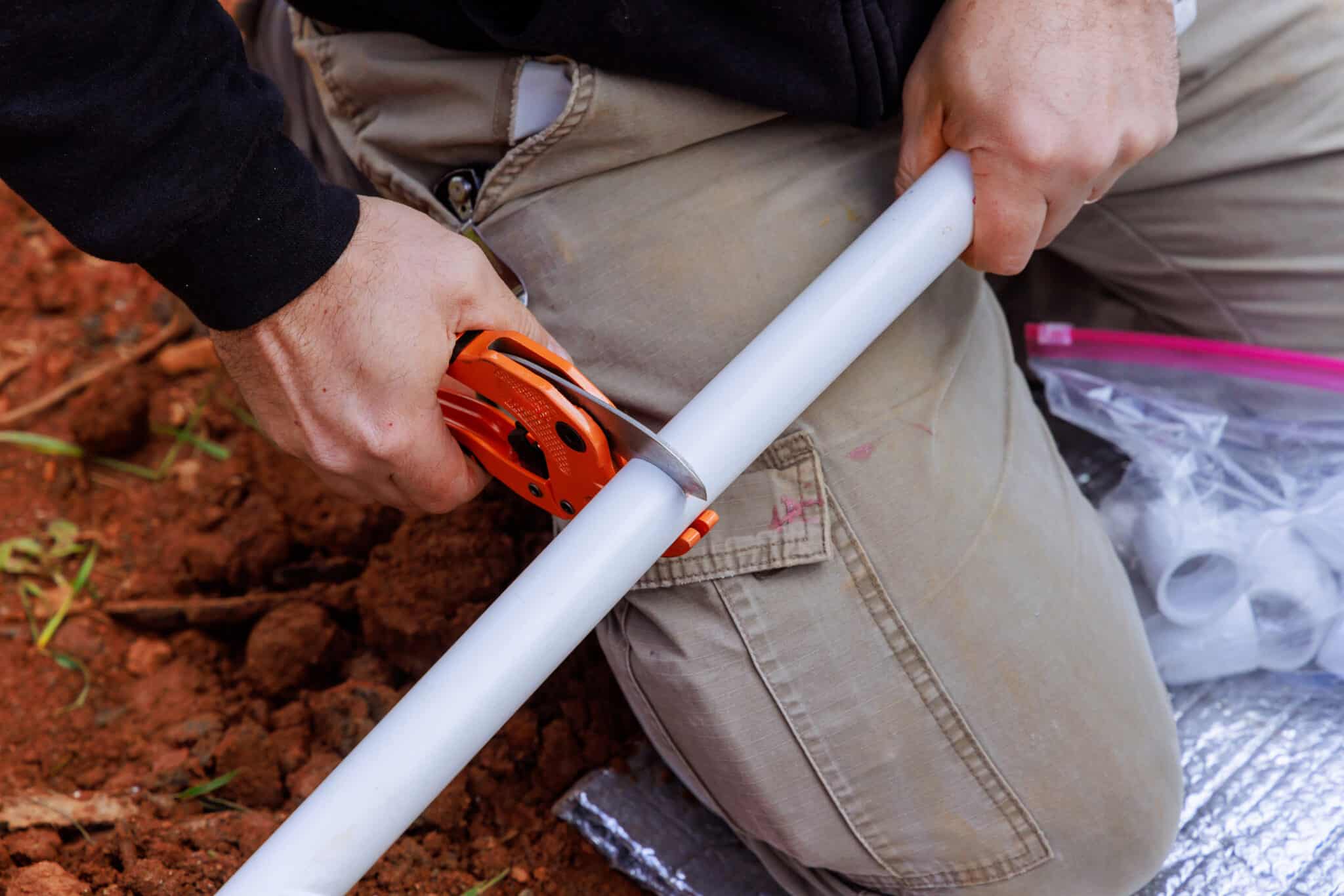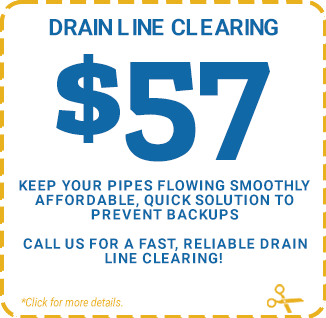Top 10 Signs You Need Plumbing Repair
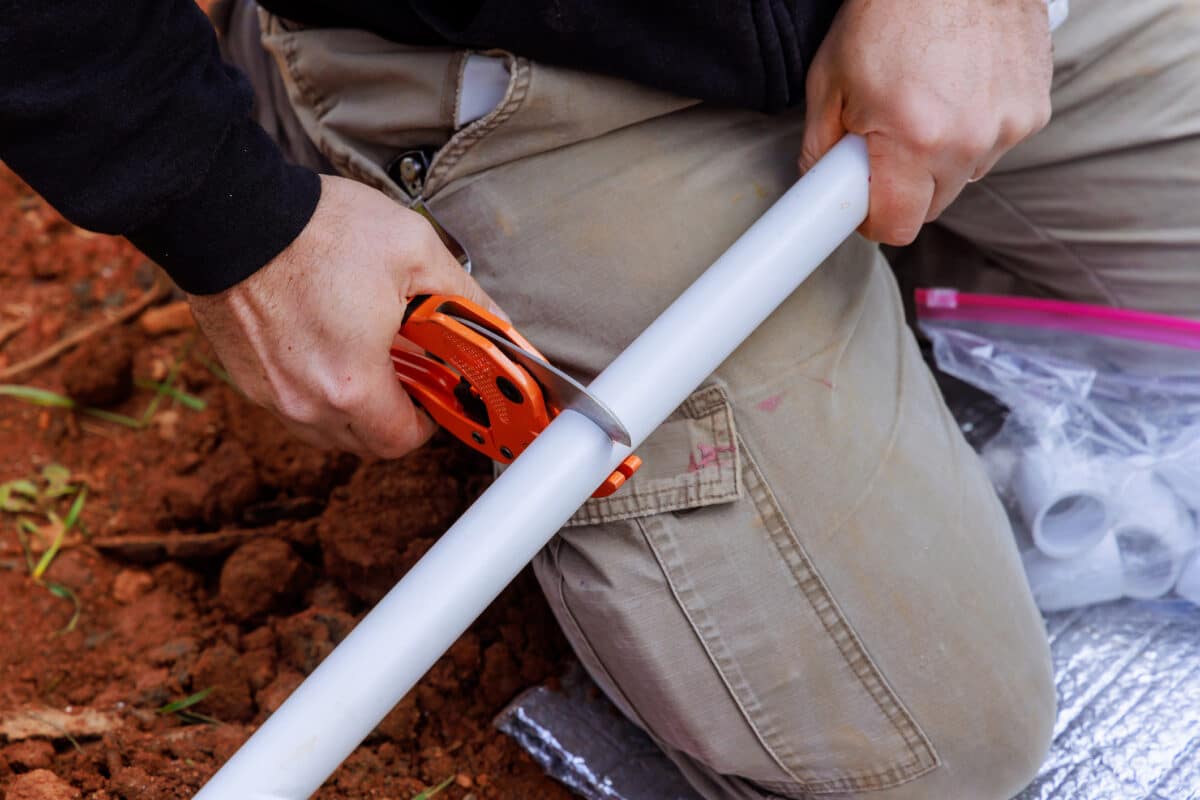
- Low Water Pressure: If water pressure drops suddenly or is consistently low, it could be due to clogged pipes, leaks, or mineral buildup.
- Slow Draining Sinks and Tubs: Persistent slow drains often indicate clogs caused by hair, soap scum, or food particles.
- Strange Noises from Pipes: Banging, gurgling, or whistling noises in pipes can signal air in the pipes, loose fittings, or water hammer issues.
- Visible Water Leaks: Water stains, pooling, and damp spots on walls or ceilings often indicate a leak that needs immediate attention.
- Foul Odors: Sewer-like smells usually point to clogged drains, broken pipes, or improper ventilation.
- Frozen Pipes: Pipes that freeze in winter can burst, leading to serious water damage.
- Water Heater Issues: Inconsistent hot water, strange noises, or visible leaks from your water heater are signs of problems that may need plumbing repair.
- Backed-Up Sewer Lines: Multiple clogged drains, gurgling toilets, or sewage odors suggest sewer line issues that require immediate attention.
- Persistent Clogs: Recurrent clogs in sinks, tubs, or toilets often indicate a deeper issue within the plumbing system.
- High Water Bills: A sudden spike in your water bill without increased usage can signal hidden leaks or running toilets that require plumbing repair.
Have you ever wondered why timely plumbing repairs are so crucial?
Plumbing issues can escalate quickly, causing significant damage to your home and leading to costly plumbing repairs. Addressing problems promptly ensures your home’s plumbing system remains efficient and reliable.
Ignoring plumbing issues can result in water damage, mold growth, and even structural damage. Water leaks, for instance, can cause severe damage to floors, walls, and ceilings. This can compromise the integrity of your home and lead to expensive restoration work. Timely plumbing repairs help prevent these issues, saving you money and stress in the long run.
Timely plumbing repairs ensure your home remains safe. Some plumbing issues, such as gas leaks or sewer line problems, pose serious health risks. Addressing these problems immediately protects your family from potential hazards, ensuring a safe living environment.
Timely plumbing repairs are essential for maintaining a safe, efficient, and valuable home. They save you money, protect your family, and promote sustainability. Don’t delay—address plumbing issues promptly to enjoy these benefits.
Common Plumbing Issues
Dealing with common plumbing issues can be a real headache. Understanding these problems and knowing how to address them can save you time and money.
Here are some of the most frequent plumbing issues homeowners face and what you can do about them and when to consider plumbing repair.
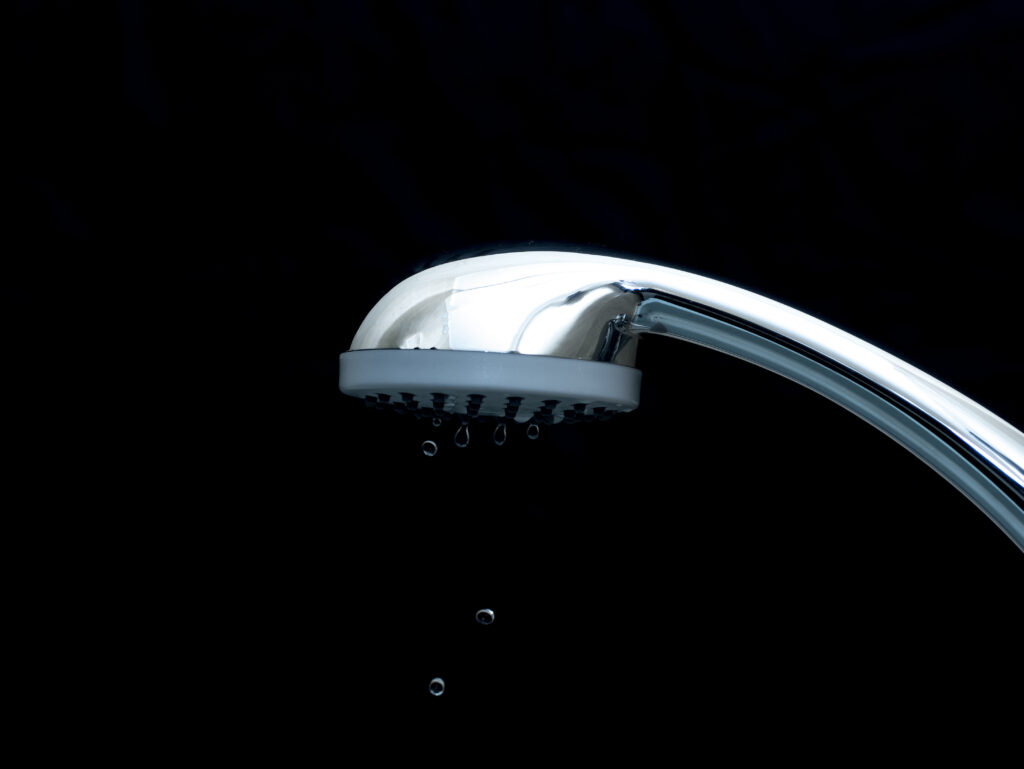
Photo from iStock – Credit: Vladislav Polishchuk
Low Water Pressure
Low water pressure is a common complaint. It can turn daily tasks like showering or washing dishes into frustrating chores. Causes of low water pressure can include clogged pipes, leaks, or problems with the municipal water supply. Mineral deposits can also build up in your pipes and fixtures, restricting water flow.
If you’re experiencing low water pressure, it’s essential to address the issue promptly. Ignoring it can lead to further complications, so consider scheduling plumbing repair to resolve the underlying problems and restore your water flow.
Causes of Low Water Pressure
Mineral deposits, particularly in areas with hard water, are a frequent cause. Over time, these deposits accumulate, narrowing the diameter of your pipes and reducing water flow. Leaks in your plumbing system can also cause low water pressure. When water escapes from the pipes, less water reaches your fixtures. Additionally, issues with the municipal water supply can affect your home’s water pressure.
When to Call a Plumber
If you notice a sudden drop in water pressure, it’s time to call a plumber. They can inspect your system, identify the cause, and make the necessary plumbing repairs. Professional plumbers have the tools and expertise to address even the most complex water pressure issues.
1. Slow-draining sinks and Tubs
Slow-draining sinks and tubs are another common problem. They can result from clogs in your pipes, often caused by hair, soap scum, or food particles. Over time, these materials accumulate, obstructing water flow and causing slow drainage.
Identifying Drain Clogs
You can often identify a clog by the slow movement of water down the drain. In some cases, you might also notice unpleasant odors coming from the drain. These smells can result from decomposing organic material trapped in the pipes.
Preventative Measures
Preventing clogs is easier than dealing with them. Use drain covers to catch hair and food particles, and avoid pouring grease down the drain. Regularly cleaning your drains with a mixture of baking soda and vinegar can also help prevent build-up.
2. Strange Noises from Pipes
Strange noises from your pipes, like banging or gurgling, can be alarming. Common causes of these noises include air in the pipes, water hammer, or loose fittings. These issues can cause vibrations and noise as water flows through your plumbing system.
Solutions for Noisy Pipes
Addressing noisy pipes often involves securing loose fittings and installing air chambers to absorb the shock of fast-moving water. A professional plumber can diagnose and fix the problem, ensuring your plumbing system operates quietly and efficiently.
Understanding these common plumbing issues and their solutions can help you maintain your home’s plumbing system effectively. Regular maintenance and prompt plumbing repairs are key to avoiding major problems down the line.
3. Visible Water Leaks
Visible water leaks are among the most obvious yet potentially damaging plumbing issues you can encounter. Spotting and addressing them promptly is crucial to prevent extensive damage to your home.
Detecting Leaks Early
Early detection of water leaks can save you a lot of trouble. Signs of leaks include water stains on walls, ceilings, or floors, damp spots, and mold growth. Pay attention to unexplained increases in your water bill, as they can indicate hidden leaks. Regularly inspect under sinks, around toilets, and near appliances for any signs of moisture.
Potential Damage from Leaks
Leaks can cause extensive damage if left unaddressed. Water can seep into structural elements of your home, weakening foundations and supporting beams. This can lead to costly plumbing repairs and potentially dangerous living conditions. Additionally, leaks can promote mold and mildew growth, which can affect indoor air quality and cause health issues.
4. Foul Odors
Foul odors coming from your plumbing system are a clear sign something is wrong. These smells are not only unpleasant but can also indicate serious issues with your plumbing.
Causes of Sewer Smells
Sewer smells are often caused by clogs, leaks, or improper ventilation in your plumbing system. Waste materials can get trapped in the pipes, decomposing and releasing foul odors. Cracked or broken pipes can also allow sewer gasses to escape into your home.
Addressing the Issue
To address foul odors, it’s essential to identify and fix the source. This might involve cleaning out clogged drains, repairing broken pipes, or improving ventilation in your plumbing system. Professional plumbers can accurately diagnose and resolve the cause of sewer smells, ensuring your home remains fresh and odor-free.
5. Frozen Pipes
Frozen pipes are a significant concern, especially in colder climates. They can lead to burst pipes, causing severe water damage and costly plumbing repairs.
Risks Associated with Frozen Pipes
When water freezes inside pipes, it expands, increasing pressure and often causing the pipes to burst. This can result in flooding and extensive water damage to your home. Burst pipes are not only expensive to repair but also disrupt your daily activities.
How to Prevent Freezing
Preventing pipes from freezing involves proper insulation and maintaining adequate heat in areas where pipes are located. Use pipe insulation, especially in unheated areas like basements, attics, and garages. During extremely cold weather, let faucets drip to keep water moving through the pipes. Also, ensure your home’s heating system is in good working condition.
6. Outdated Plumbing Systems
Outdated plumbing systems can cause various issues, from leaks to poor water pressure. Upgrading your system can enhance efficiency and prevent frequent plumbing problems.
Signs of Aging Plumbing
Signs of aging plumbing include frequent leaks, rust-colored water, and reduced water pressure. If your home has galvanized steel pipes, which are prone to corrosion and leaks, this is a strong indicator that your plumbing system needs an upgrade. In such cases, timely plumbing repair is crucial to prevent further issues and ensure the integrity of your water supply
Benefits of Upgrading
Upgrading your plumbing system offers numerous benefits. Newer pipes are more durable and less prone to leaks and corrosion. Improved water pressure and better water quality are additional advantages. Upgrading can also increase your home’s value, making it more attractive to potential buyers.
Keeping your plumbing system in top shape is essential for a safe and comfortable home. Regular inspections and timely plumbing repairs can prevent minor issues from becoming major problems.
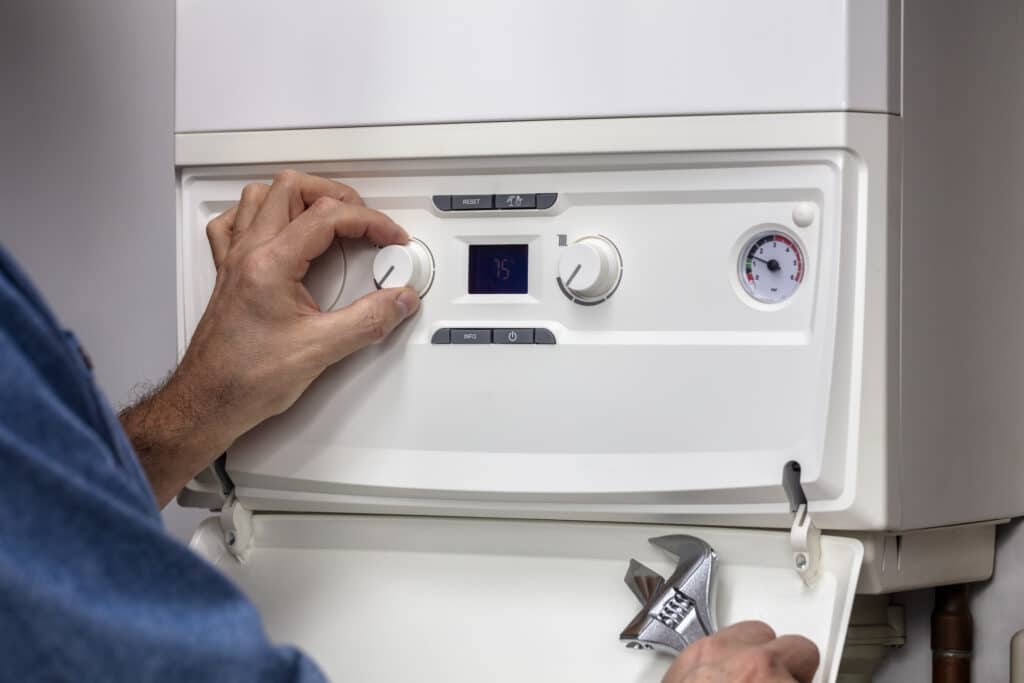
Photo from iStock – Credit: BrianAJackson
7. Water Heater Issues
Water heaters are crucial for household comfort, providing hot water for showers, dishwashing, and laundry. However, they can encounter problems that disrupt your daily routine. Understanding common water heater issues and maintenance tips can help you avoid cold showers and unexpected expenses. If you notice any signs of trouble, don’t hesitate to seek plumbing repair; addressing issues early can save you from costly breakdowns and ensure your water heater operates efficiently
Common Problems with Water Heaters
Water heaters, like any appliance, can develop issues over time. Common problems include no hot water, insufficient hot water, strange noises, and leaks. These issues can stem from various causes, such as sediment build-up, faulty heating elements, or thermostat malfunctions.
No Hot Water
A lack of hot water is one of the most noticeable problems. This issue often points to a malfunctioning heating element or a problem with the thermostat. Electric water heaters have two heating elements, and if one fails, it can result in no hot water or not enough hot water.
Strange Noises
Water heaters can produce unusual noises like popping, rumbling, or hissing. These sounds usually indicate sediment build-up in the tank. As water heats, the sediment at the bottom of the tank causes popping sounds. Regular flushing of the tank can prevent this build-up.
Leaks
Leaks are another common issue with water heaters. They can occur due to corrosion, a faulty pressure relief valve, or loose connections. Even a small leak can cause significant water damage if left unaddressed. Regular inspection can help detect leaks early and prevent extensive damage.
Maintenance Tips
Proper maintenance can extend the life of your water heater and ensure it operates efficiently. Here are some essential maintenance tips:
- Flush the Tank Annually: This removes sediment build-up, which can improve efficiency and extend the heater’s lifespan.
- Check the Pressure Relief Valve: Ensure it’s working correctly to prevent pressure build-up that can cause leaks or tank bursts.
- Inspect the Anode Rod: This rod attracts corrosive elements in the water, protecting the tank from rust. Replace it if it’s heavily corroded.
- Adjust the Thermostat: Set the thermostat to 120 degrees Fahrenheit to save energy and prevent scalding.
- Insulate the Tank and Pipes: Insulation helps maintain the water temperature and improves energy efficiency.
8. Backed-Up Sewer Lines
Backed-up sewer lines are a severe plumbing issue that can cause extensive damage and pose health risks. Understanding the warning signs and immediate steps to take can help you mitigate damage.
Warning Signs of Sewer Issues
Warning signs of sewer line issues include multiple slow drains, gurgling sounds from toilets, foul odors, and water backing up in the drains. If you notice these signs, it’s crucial to act quickly.
Steps to Take Immediately
If you suspect a sewer line problem, avoid using water fixtures to prevent further backup. Contact a professional plumber immediately to inspect and address the issue. They can use advanced tools like cameras to diagnose the problem and recommend appropriate plumbing repairs.
9. Persistent Clogs
Persistent clogs in your plumbing system can be frustrating and indicate deeper issues. Identifying the causes and seeking professional solutions can ensure smooth water flow.
Recurring Clogs and Their Causes
Recurring clogs are often caused by build-up of hair, grease, soap scum, and foreign objects. They can also result from issues in the main sewer line, such as tree root intrusion or pipe damage.
Professional Solutions
Professional plumbers can offer effective solutions for persistent clogs. They use tools like drain snakes, hydro-jetting, and cameras to clear and inspect the pipes. Regular professional cleaning can prevent clogs and maintain your plumbing system.
Maintaining your plumbing system with regular inspections and timely plumbing repairs is essential for a comfortable and efficient home. Addressing water heater issues, backed-up sewer lines, and persistent clogs promptly can prevent major problems and ensure a smooth-running household.
10. High Water Bills
High water bills can be a shock and may indicate underlying plumbing issues. Understanding the causes and taking steps to address them can help you save money and conserve water.
Detecting Hidden Leaks
One of the main causes of high water bills is hidden leaks. Hidden leaks can occur in walls, under floors, or underground, making them difficult to detect. However, there are signs you can look for, such as unusually high water bills, damp spots, and the sound of running water when all fixtures are turned off.
To detect hidden leaks, you can:
- Check Your Water Meter: Turn off all water fixtures and check the meter. If the meter is still running, you likely have a leak.
- Inspect Your Home: Look for water stains, damp spots, and mold growth.
- Use Food Coloring: Add food coloring to the toilet tank. If the color seeps into the bowl without flushing, there’s a leak.
If you suspect a hidden leak, it’s crucial to seek plumbing repair immediately. Promptly addressing leaks can prevent further damage to your home and help you save on your water bill.
Reducing Water Usage
Reducing water usage not only lowers your bills but also conserves this precious resource. Here are some effective strategies:
- Fix Leaks Promptly: Even small leaks can waste a significant amount of water.
- Install Low-Flow Fixtures: Low-flow showerheads, faucets, and toilets reduce water usage without compromising performance.
- Use Water-Efficient Appliances: Dishwashers and washing machines with high efficiency use less water.
- Practice Water-Saving Habits: Turn off the tap while brushing your teeth, take shorter showers, and run dishwashers and washing machines with full loads.
Who to Call for Plumbing Repairs
Choosing the right professional for your plumbing needs ensures quality work and peace of mind. Here’s how to find the best plumber for your situation.
Choosing the Right Professional
When selecting a plumber, consider:
- Experience and Reputation: Look for plumbers with a solid track record and positive customer reviews.
- Licensing and Insurance: Ensure the plumber is licensed and insured to protect yourself from liability.
- Services Offered: Choose a plumber who offers a wide range of services to handle any issue that arises.
- Pricing: Compare quotes from different plumbers and look for transparent pricing.
By understanding common plumbing issues and knowing when to call a professional, you can maintain a safe and efficient home.
Regular maintenance and prompt plumbing repairs ensure your plumbing system runs smoothly, saving you money and preventing major problems.
FAQ about Plumbing Repair
-
How often should I have my plumbing inspected?
It’s recommended to have your plumbing inspected at least once a year. Regular inspections can identify potential issues early, saving you from costly repairs and water damage.
-
What are the most common plumbing emergencies?
Common plumbing emergencies include burst pipes, backed-up sewer lines, overflowing toilets, and severe leaks. These issues require immediate attention to prevent extensive damage to your home.
-
How can I prevent plumbing issues in the future?
To prevent plumbing issues, practice regular maintenance. This includes checking for leaks, insulating pipes, using drain covers, and avoiding flushing inappropriate items down the toilet. Regular professional inspections also help catch potential problems early.
-
Why is my water bill suddenly so high?
A sudden increase in your water bill can be due to hidden leaks, running toilets, or increased water usage. Inspect your home for signs of leaks and consider having a professional plumber perform a thorough check.
-
What should I do if I have a plumbing emergency?
In case of a plumbing emergency, turn off the main water supply to prevent further damage. Contact a professional plumber immediately for assistance. Keep emergency plumbing contacts handy to ensure quick response times.










